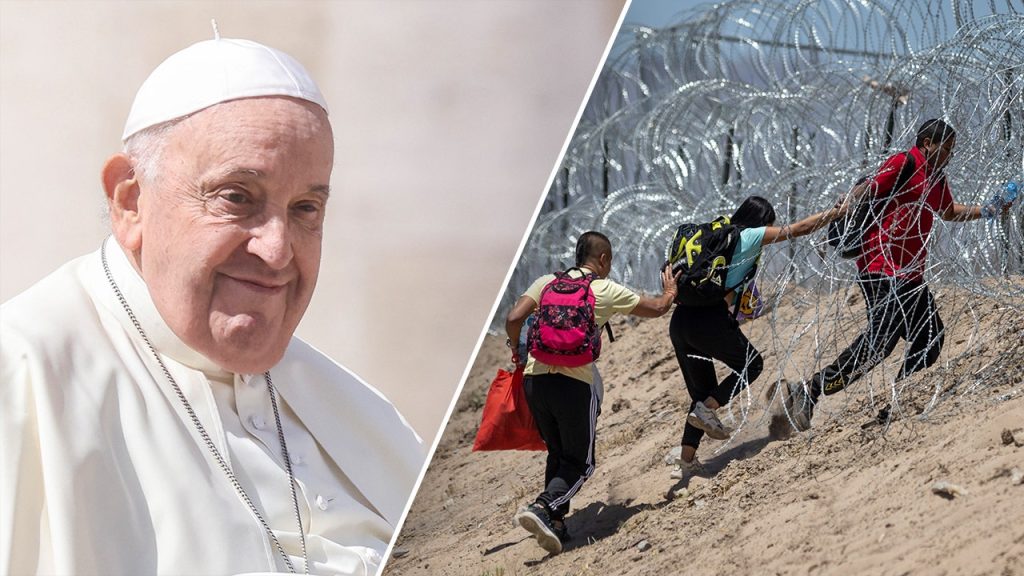Pope Francis, a staunch advocate for migrants and refugees, has reiterated his call for their acceptance and integration into societies, emphasizing a moral imperative grounded in the Gospel. He addressed the Italian non-profit organization “ResQ,” commending their efforts to rescue migrants stranded at sea and highlighting the hardships faced by those forced to migrate, including exploitation, rejection, abuse, and even enslavement. The Pope stressed the need to “welcome, accompany, encourage, and integrate” migrants, linking this generosity to the Gospel’s message of caring for the most vulnerable. He acknowledged the challenges faced by civil authorities in managing the complex migration phenomenon but emphasized the critical nature of rescuing those risking their lives in perilous sea journeys. These individuals are often fleeing conflicts, humanitarian crises, and human rights violations in their home countries.
The Pope’s plea comes amidst an unprecedented surge in global migration, causing strain on resources and sparking divisive debates in Europe and the United States. New York City, for instance, has incurred substantial costs in providing essential services to migrants, illustrating the financial burden on host cities. The scale of the crisis is reflected in data from the International Organization for Migration (IOM), which recorded a record number of migrants moving to OECD countries in 2023. This influx has added to the existing strain on national and local governments, raising concerns about the long-term sustainability of providing adequate support and resources.
The Pope’s consistent message of welcoming migrants is rooted in Catholic social teaching, which emphasizes the dual obligations of governments: welcoming foreigners out of charity and respect for human dignity, while also securing borders and upholding the law for the common good. This delicate balance requires careful consideration of both humanitarian concerns and the practical realities of managing migration flows. The Pope’s appeal aligns with the Catechism of the Catholic Church, which highlights the right to immigrate and calls on financially stable nations to accommodate this right to the best of their ability.
Pope Francis has previously championed initiatives like “humanitarian corridors” that facilitate safe passage for refugees to Europe. He sees safe, orderly, and sustainable migration as beneficial for all countries involved. One such initiative, spearheaded by the Sant’Egidio Catholic charity and other organizations, has successfully brought thousands of asylum seekers to Italy, providing them with assistance to integrate and apply for asylum. This approach, which combines pre-screening and support services, offers a potential model for other countries seeking to manage migration in a humane and organized manner.
The ongoing migration crisis presents a complex challenge requiring both immediate action and long-term solutions. The Pope’s message underscores the ethical dimension of the crisis, urging societies to view migrants not as a burden but as fellow human beings deserving of compassion and support. His call for integration emphasizes the importance of not just welcoming migrants but also creating pathways for them to become contributing members of their new communities. This requires fostering understanding, addressing potential cultural differences, and providing access to education, employment, and other resources that facilitate meaningful inclusion.
Addressing the root causes of migration, such as conflict, poverty, and lack of opportunity, is crucial for mitigating the long-term flow of migrants. This requires international cooperation and sustained efforts to promote peace, stability, and economic development in countries of origin. Furthermore, developing comprehensive and humane migration policies is essential for balancing the rights and needs of both migrants and host communities. Implementing such policies necessitates collaboration between governments, non-governmental organizations, and international bodies to ensure effective management and equitable distribution of resources. The Pope’s message serves as a reminder of the shared human responsibility to address this global challenge with compassion and a commitment to finding sustainable solutions.


